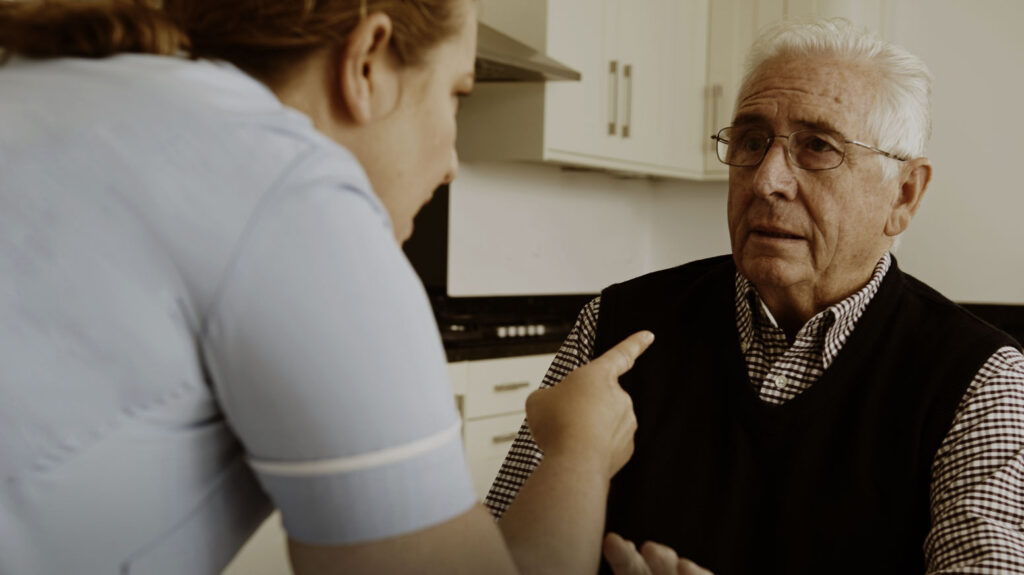Farmington Nursing Home Neglect
Need a Farmington Nursing Home Neglect lawyer?
If you or a loved one suffered nursing home neglect—you may be entitled to compensation. Nursing Home neglect claims can be complex, but Etemi Law has the experience to guide you through it. We’re committed to helping nursing home neglect victims get the justice and compensation they deserve.
Call us today at (203) 409-8424 for a


The Reality of Nursing Home Neglect
A nation’s greatness is measured by how it treats its weakest and most vulnerable members. Over time, elder care in America has shifted—from the hands of loving families to the hands of large corporations. And while corporations prioritize profits, the care of our elderly too often becomes secondary.
Today, thousands of long-term care facilities across the U.S. house millions of elderly residents. Tragically, neglect, abuse, and injuries are a persistent—and growing—problem. As your trusted Farmington nursing home neglect lawyer, Etemi Law is here to protect your loved ones and hold negligent facilities accountable.
What Is a Nursing Home Neglect Lawsuit?
A nursing home neglect lawsuit is a legal action taken when a long-term care facility fails to provide the standard of care that the law requires, resulting in injury or death to a resident. As your Farmington nursing home neglect lawyer, Etemi Law handles cases involving:
Bed sores and pressure ulcers due to failure to monitor, treat, or diagnose wounds
Over-medication used to chemically restrain or sedate residents
Assaults, including those by staff or other residents
Falls and injuries caused by inadequate supervision and safety measures
If your loved one has been harmed due to a facility’s negligence, you may have grounds for a lawsuit. A knowledgeable Farmington nursing home neglect lawyer from our team can help you take action.
Who Can File a Nursing Home Neglect Claim in Farmington?
In Connecticut, the resident themselves (if capable) or their legal representative—such as a guardian, conservator, or estate executor—can file a claim. In the case of death, surviving family members may receive compensation.
An experienced Farmington nursing home neglect lawyer from Etemi Law will:
✅ Review medical records and facility documentation
✅ Coordinate with healthcare and elder care experts
✅ Determine liability and identify responsible parties
✅ Handle probate and legal procedures, if needed
You focus on your loved one’s safety—we’ll handle the legal fight.
What Damages Can a Farmington Nursing Home Neglect Lawyer Help You Recover?
Neglect in nursing homes can lead to serious physical and emotional harm. Compensation in a successful case may include:
Costs for medical treatment and rehabilitation
Pain and suffering of the resident
Loss of quality of life and emotional trauma
Funeral and burial expenses, if neglect led to death
Punitive damages for gross misconduct or abuse
Our role as your Farmington nursing home neglect lawyer is to ensure your family receives the justice and financial relief you deserve.
Why You Need a Farmington Nursing Home Neglect Lawyer
Nursing home corporations and their insurers often attempt to downplay or cover up abuse and neglect. They may offer low settlements that don’t reflect the seriousness of the harm done.
With Etemi Law by your side, a skilled Farmington nursing home neglect lawyer will:
Investigate all aspects of the incident
Preserve critical evidence, including surveillance and logs
Coordinate with health authorities and regulatory agencies
Aggressively negotiate—or take your case to court
We fight for the dignity and rights of every elder who has been harmed. We do not back down.
Contact a Trusted Farmington Nursing Home Neglect Lawyer Today
If you suspect that a loved one is being mistreated in a nursing home, take immediate action. Report the abuse to the appropriate authorities—and contact Etemi Law without delay.
📞 Call
📨 Email us directly
💻 Submit our Free Case Evaluation Form
Let a dedicated and compassionate Farmington nursing home neglect lawyer at Etemi Law protect your loved one’s rights and help you seek full and fair justice.
As evening crowds gather for concerts and seasonal fairs at the Hill‑Stead Museum, Farmington’s own nightlife rhythm changes. Route 4 funnels cars and ride‑shares toward the village, narrowing windows for safe ambulance access and late transfers to care. Nursing home staff and family members notice that what begins as a pleasant evening program can complicate timely transport, medication handoffs, and the triage of nighttime injuries from slips or disorientation.
Nearby corridors connect directly to UConn Health (John Dempsey Hospital), the regional receiving center for more serious falls and sudden medical events. At festivals the ambulance queues can form along Route 4 and secondary streets, stretching typical interfacility transfer windows. Nursing homes coordinate with emergency medical services and outpatient rehab at UConn Health, organizing stretcher access, late‑arrival evaluations, and post‑acute therapy plans that account for weekend and evening surges.
The Farmington Canal Heritage Trail is also part of the nightlife picture — candlelit walks, bicycle traffic and evening runners increase contact points where residents may trip or become confused. Rehab patterns after such incidents often require short inpatient stays followed by increased physical therapy visits and transportation coordination. Understanding these rhythms helps care teams plan discharge timing, arrange specialized transport, and anticipate when extra home‑like support will be needed.
As an observer of how local events reshape medical logistics, I watch how Hill‑Stead programs, Route 4 congestion, and the Canal Trail’s pedestrian flow intersect with nursing home care in Farmington. Families and staff adapting to night‑time surges recognize the need for timely transfers, clear documentation for emergency responders, and rehab scheduling that matches community patterns — all aimed at practical, patient‑centered transitions rather than promises about outcomes.
